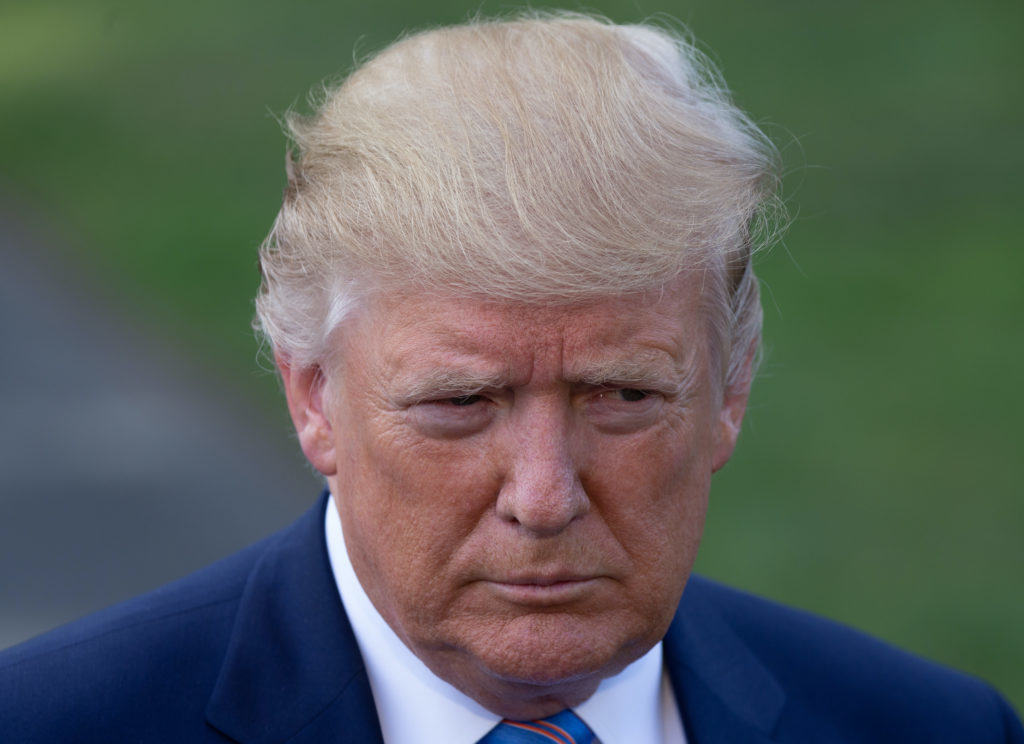Donald Trump’s Orwellian nightmare

I have reached the minimum number of years writing political commentary (nearly two) in which it is possible to establish anything like an annual personal tradition. Those of you who are good at discerning patterns will recall that the fourth of April is one of my dates to remember George Orwell. Not that I need any excuse. Orwell’s relevance has become the world’s relevance today more than at any other time in human history.
There is a poignant irony that Orwell coughed his lungs out while finishing his greatest novel, a novel that begins on April fourth, 1984, a seemingly impossible-to-envisage futuristic date for a man dying from tuberculosis on the Hebridean Isle of Jura in December of 1948. Eric Arthur Blair, Orwell’s real name, the name engraved on his simple tombstone in an unpretentious graveyard behind an unremarkable English church, would have empathized with us today and our acute respiratory pandemic. He would have appreciated, as no one else could have, our physical and political agony, as he desperately suffered from the former and accurately foresaw the latter.
It might have surprised Mr. Orwell to learn that a vulgarian buffoon like Donald Trump could have ascended to the presidency, but it wouldn’t have surprised him at all that Trump could set in motion the death of America’s democracy. Orwell knew that talent wasn’t required, only a will to do so and the power with which to do it. Orwell’s dystopia in “1984” is run by the crude, the vulgar, the obvious, the savage.
The daily “two minute hate,” in which members of the Party watch a film while participating in a collective orgy of rage, culminating in a primal scream crescendo of maniacal hatred for Emmanuel Goldstein, is a case in point. Goldstein is a convenient scapegoat for the rage created by their desperately unhappy existences. He is the equivalent of what Trump uses to redirect the rage of the simpleminded masses away from himself and toward the Goldsteins of immigrants, Democrats and the Chinese. When human outrage at intolerable conditions arise, the tyrant always has a Goldstein in the offing.
It is 1984’s protagonist Winston Smith’s job to serve as a flywheel in the machinery that rewrites history. He performs his work with a kind of reluctant, disgusted fascination, altering newspaper accounts of past events to reflect the current and ever-changing present day “truth.” Smith is, you might say, a truth counterfeiter, a manufacturer of alternative truths. He works for the “1984” equivalent of Fox News.
In Orwell’s dystopia, history can be changed in the middle of a speech. A party official is handed a slip of paper and in mid-sentence he changes the name of Oceania’s enemy from “Eurasia” to “Eastasia” without missing a beat. Fanatical party functionaries listening to the speech begin tearing down posters suggesting that Oceania was ever at war with Eurasia, ready to denounce and have shot anyone who would ever suggest otherwise. We are at war with Eastasia, we have always been at war with Eastasia. Amen. Orwell would have known how it’s possible that Donald Trump always understood pandemics and was always magnificently prepared for them, why Emmanuel Goldstein (aka Barack Obama) has so tragically and incompetently failed us, and why Dr. Anthony Fauci now needs bodyguards for daring to contradict America’s very own Big Brother.
Orwell suffered from a condition, tuberculosis, that was eminently treatable in 1948. It is one of the many disgraces of history that we allowed our greatest prophet to die because of a lack of money. In other words, because he didn’t enjoy the same advantages of a Jim Jordan or a Devin Nunes or a Donald Trump, a man worth forty times those three on a bad day had to die, and history lost out on another thirty or forty years of its greatest political commentator. Would we have avoided Trump had Orwell stuck around? The cynic inside me thinks not, the human being inside me hopes that maybe we would have. That is the same impulse that causes me to hope we will get out of the mess we are in now, not just barely alive and gasping for breath, like our dearly departed Eric Arthur Blair, but triumphant. And as ever, ladies and gentlemen, brothers and sisters, comrades and friends, stay safe.

Robert Harrington is an American expat living in Britain. He is a portrait painter.
